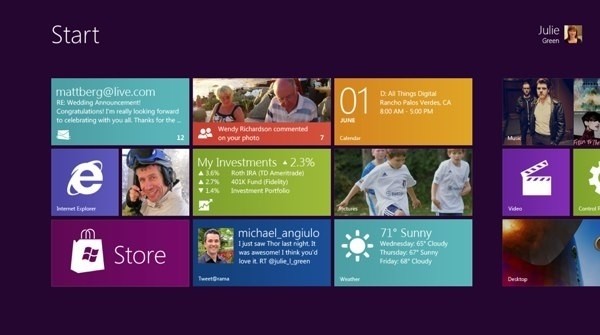Microsoft may release the first public beta of Windows 8 as early as February 2012, according to sources close to the company cited by The Next Web. An exact date for the completion and shipping of Microsoft's next major operating system release remains unknown for now, but putting Windows 7's release milestones in a Windows 8 context, the site believes the completed RTM version could hit the market around June.
If their estimates are accurate, Windows 8 could arrive late in Q3 or going into Q4, just ahead of the 2012 holiday season, giving partners enough time to ship the OS with their PCs and tablets. By comparison, Microsoft released a public beta of Windows 7 in January of 2009, with the final version hitting in October.
The site says it hasn't been able to confirm exactly what will be included in the beta itself, as the feature set will be decided based on which components are ready for public testing at the time of release.
A developer preview of Windows 8 has been available since mid-September, but Microsoft has been cooking a number of changes and new features that are due for the beta and final versions. The company has detailed a few of them in their official Building Windows 8 blog, including better memory management, changes to the Task Manager and Windows Explorer, search improvements, among others.

One particular feature that has received a fair amount of criticism from users is the new Metro start screen, a touch-optimized interface akin that of Windows Phone . Microsoft says Metro represents a major re-think of how users interact with Windows, and while users can easily switch to the classic desktop environment, many are concerned that having it as the default start screen for non-touch devices would make no sense.
It seems like an easy problem to fix but it remains to be seen if Microsoft is willing to make that concession.
On a related note, rumors are starting to emerge that the traditional Windows desktop will not be included on Windows 8 tablets powered by ARM-based processors. Instead, these devices will rely exclusively on the Metro user interface and software written specifically for it. That sounds like a reasonable thing to do, at least initially, considering the amount of work it would take to tweak 'legacy' x86 software for ARM chipsets – not to mention these applications are not optimized for touch environments.